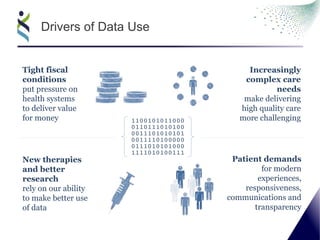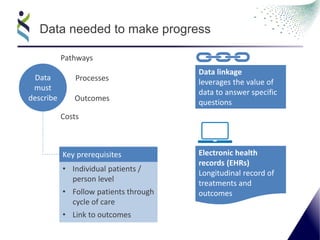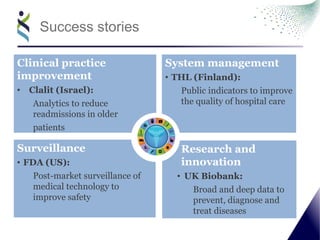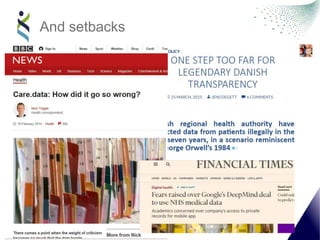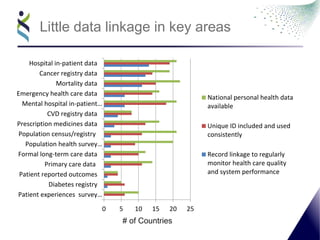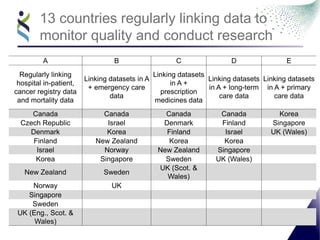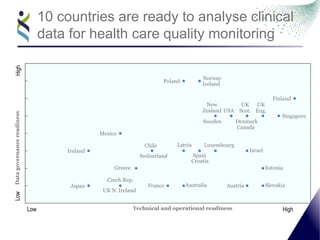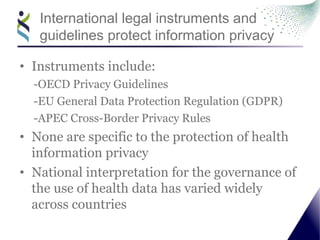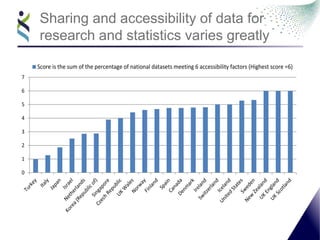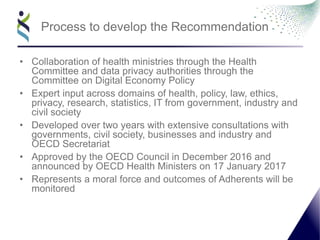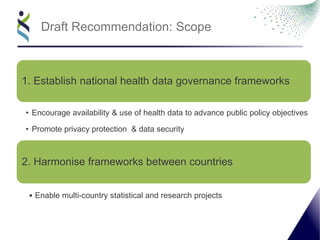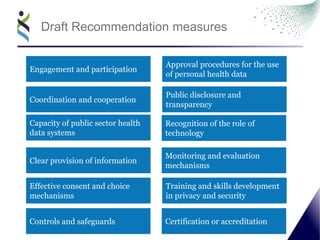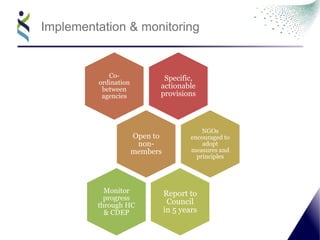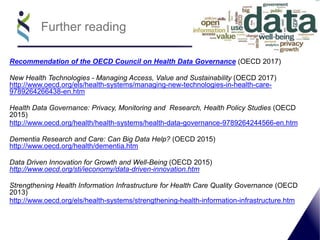The document discusses the OECD Recommendation on Health Data Governance. It notes that better policy frameworks are needed to make more effective use of health data. The recommendation was developed over two years with input from governments, civil society, and industry. It aims to establish national health data governance frameworks, promote privacy and data security, and enable cross-country research and statistics. The recommendation includes provisions around transparency, consent, oversight, and monitoring progress on implementation.
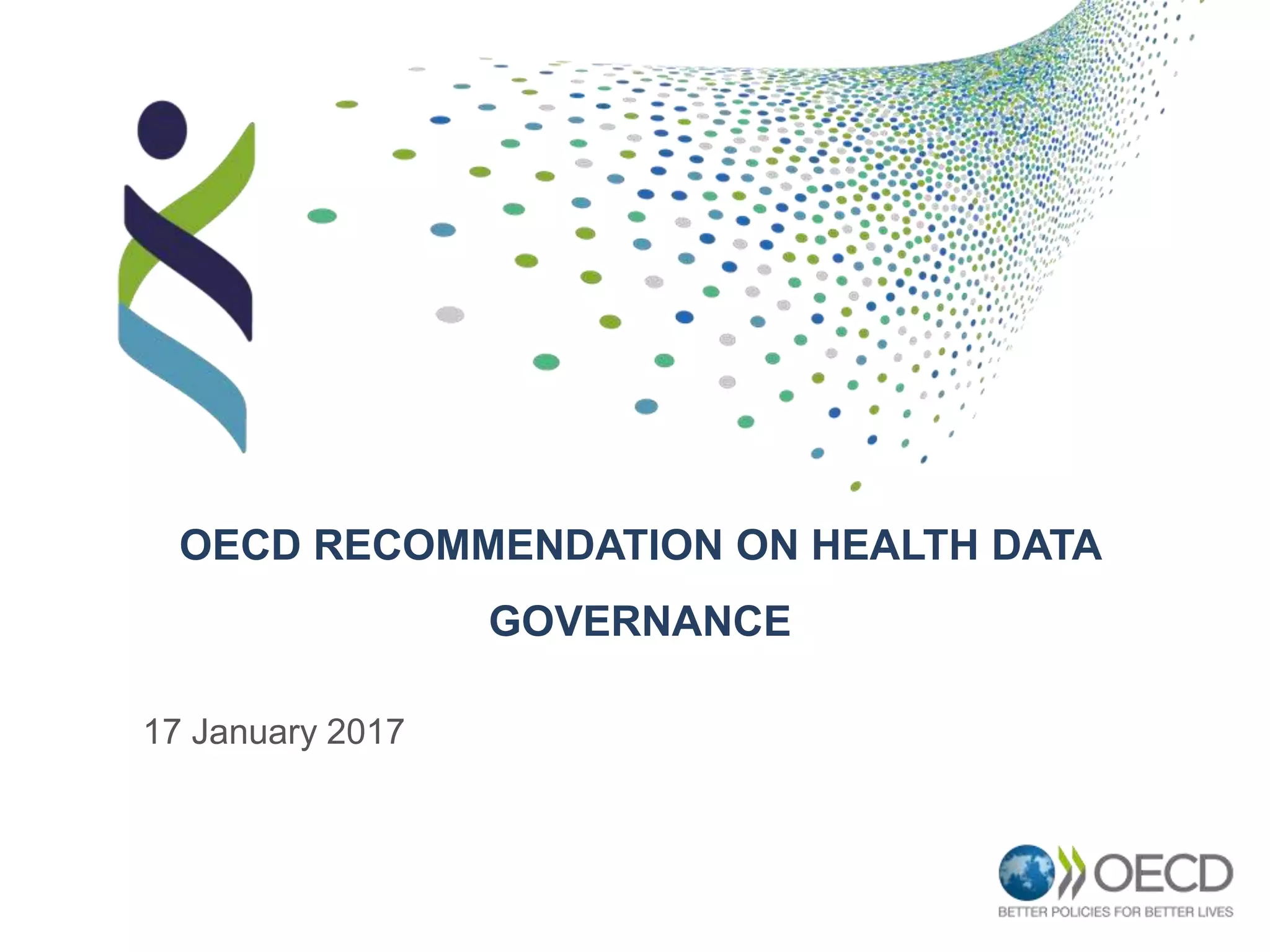
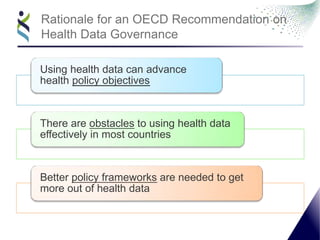
![Culmination of 6 years’ work ….
OECD Guidelines Governing the Protection of
Privacy and Transborder Flows of Personal Data
[C(80)58/FINAL as amended by C(2013)79]](https://image.slidesharecdn.com/presentation-health-data-governance-recommendation-170117151901/85/Health-Data-Governance-Recommendation-Presentation-3-320.jpg)
